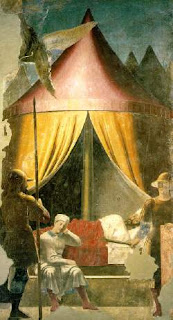
This week’s readings discussed a different aspect of memory; how it is processed and eventually recalled. This chapter describes several memory processing principals that included level of processing (things are more likely to be remembered if they are processed at a deeper level), transfer appropriate processing (things are remembered better if the processing is appropriate for the test at hand), and encoding specificity principle (the properties of the encoded event is closely related to the properties of the retrieval information i.e. being tested in the same room that the information is taught increases your chances of retrieving it successfully when tested). In the authors’ discussion of the encoding specificity principle, they state that this principle is the reason why we do not remember our dreams. They state that we have “dream amnesia” because the state in which the dreams take place is very different from the state in which we try to recall them. This makes sense because I seem to never remember my dreams unless they were really nightmares. But do certain people recall their dreams better than others. Based on the encoding specificity principle the answer would be “no,” but research done by David Watson, a professor of psychology in the University of Iowa, states the contrary.
In his study, Watson required 193 college students to record the time that the went to bed, the time that they woke up, whether they consumed alcohol or caffeine 4 hours prior to going to bed, and whether they recalled any of the dreams that they had that night. Participants recorded this information for 14 weeks.
The results of this study showed that there was no correlation between the amount of a sleep a participant had and their recall of dreams. He did find that those who had inconsistent sleep schedules tended to dream more and those who characterized themselves as a “night person” recalled their dreams more often. The most surprising result Watson found was that creative people remember their dreams better.
After thinking about Watson’s research, I realized that it really does not disprove the encoding specificity principle. Yes, he stated that creative people recalled their dreams better but that’s because their lives when they are awake and when they are asleep are similar. Creative people may be more imaginative and fantasize/daydream more. These are states that are characteristics of dreams. This makes creative people’s dream state reflect their waking state, thus improving their dream recall.
The entire research article can be found here:
www.scienze-relazionali.unina.it/didattica/docenti/giuditta/materiali/dream%202003.pdf
In his study, Watson required 193 college students to record the time that the went to bed, the time that they woke up, whether they consumed alcohol or caffeine 4 hours prior to going to bed, and whether they recalled any of the dreams that they had that night. Participants recorded this information for 14 weeks.
The results of this study showed that there was no correlation between the amount of a sleep a participant had and their recall of dreams. He did find that those who had inconsistent sleep schedules tended to dream more and those who characterized themselves as a “night person” recalled their dreams more often. The most surprising result Watson found was that creative people remember their dreams better.
After thinking about Watson’s research, I realized that it really does not disprove the encoding specificity principle. Yes, he stated that creative people recalled their dreams better but that’s because their lives when they are awake and when they are asleep are similar. Creative people may be more imaginative and fantasize/daydream more. These are states that are characteristics of dreams. This makes creative people’s dream state reflect their waking state, thus improving their dream recall.
The entire research article can be found here:
www.scienze-relazionali.unina.it/didattica/docenti/giuditta/materiali/dream%202003.pdf
If you want to have a good laugh go to this website: http://www.brilliantdreams.com/
This website claims to sell a dream pill that induces dreams and improves your recall of dreams and memory. Who would purchase this product???
Note: The fresco painting on the right was done by Italian Renaissance artist Pierro della Francesca and is called "Constantine's Dream "

1 comment:
hi, there very good!! ok!!
Post a Comment